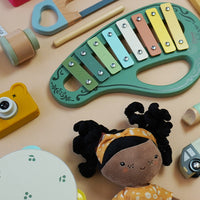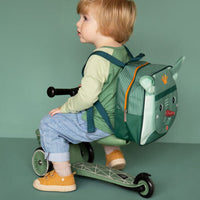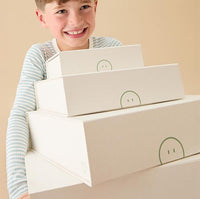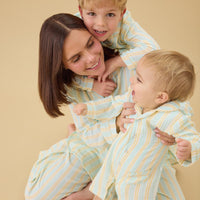One of the most common problems that cause unsettled babies is over-tiredness. It's often hard to determine and prevent, but once you know the signs you can help to make sure your little one doesn't become too tired. We spoke to International Child & Baby Sleep Consultant, Rozanne Hay, about the signs to look out for and how to help prevent over-tiredness from happening.
Understanding over-tiredness in babies
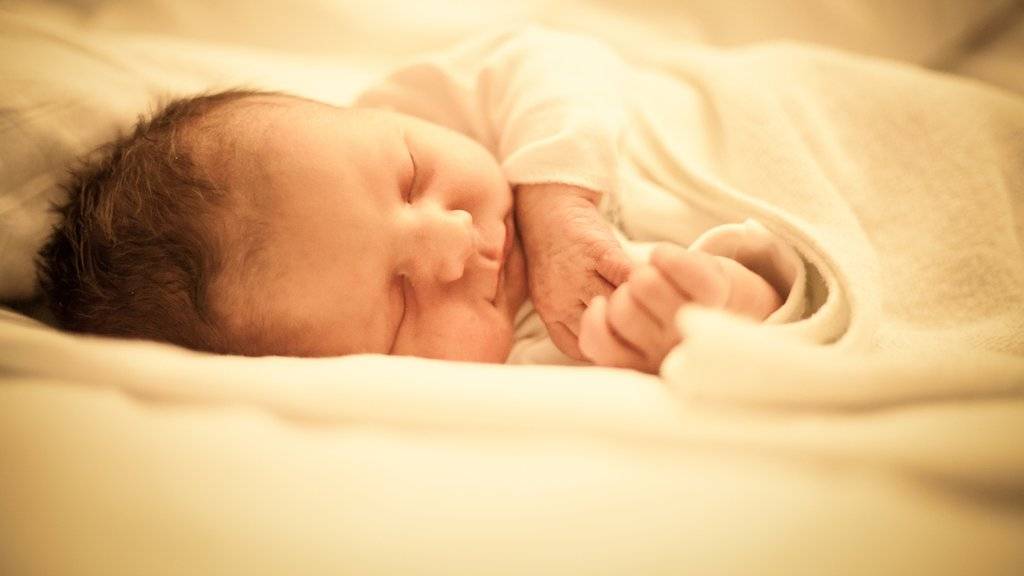
If I could help all new parents understand just one thing, it would be the fundamental facts of the circadian rhythms and how they dominate the day and night cycles of waking and sleeping. Why? Because this information helps us guide our children back into healthy sleeping routines after disruptions such as holidays or sickness. This isn’t just theoretical information, it helps avoid sleep management approaches that can be distressing to both parents and children. I believe that around 90% of the sleep issues experienced by babies and young children could be resolved by regulating and scheduling so as to avoid an overtired state. The remaining 10% of issues can be easily addressed by tapping into each child’s natural rhythms to help them maximise their own sleep potential.
overtired baby? A definition
The key point about over tiredness is that it means a baby’s body has reached a point where it has gone past the ability to sleep. An overtired baby has become so physically exhausted that his or her stress response system kicks in, releasing cortisol and adrenaline which makes it even more difficult for baby to relax enough to sleep. If a baby is overstimulated, her brain acts to keep her awake, despite the obvious need for sleep.
What parents need to understand is that this easily becomes a cyclical pattern; an overtired baby finds it hard to calm down enough to sleep, which increases the stress response in his or her body, which makes the over-tiredness worse.
your baby sleep/wake cycles are guided by hormones
The key hormones we need to understand are melatonin and cortisol. Cortisol keeps us awake and is at its most prevalent in the body at around 8 am, declining in potency throughout the day, unless a stress response causes the body to release more. Conversely, melatonin increases as light levels decrease, naturally preparing the body to sleep when darkness arrives.
Helping your baby’s brain to release melatonin means that you don’t have to fight to get him or her to sleep once cortisol levels have risen through over-tiredness.
the signs of over-tiredness
Over-tiredness is a very subtle state and it can help greatly if parents learn to prioritise looking out for the signs of over-tiredness so that they can immediately respond to these cues without waiting for the more obvious signs of sleepiness which can mean it’s already too late to prevent the stress response.
Baby sleeping problems start with tell-tale signs. The earliest signs of over-tiredness in newborns include: subdued behaviour, a glazed stare and back arching. For older babies the same signs apply but also include grizzling and not wanting to feed. In fact poor feeding or unexpected lack of appetite may be misunderstood - they are often clear signs that a baby is about to enter the overtired state.
More developed signals of over-tiredness include rubbing the nose or eyes, pulling on the ears and yawning. By this time the fight, flight or fright hormone has probably been released.
act swiftly to avoid baby sleep problems
Begin by ensuring you lower light levels to encourage melatonin release, long before you want your child to sleep. Establish (and keep to) a sleep routine that teaches your baby that the end of the process is sleep - this might mean giving a gentle massage, reducing eye contact (eye contact stimulates babies, so keep your gaze lowered to help them relax), swaddling, using white noise… Whatever works to help your baby make progress towards sleep.
By sticking to simple routines, monitoring your child’s tiredness levels and avoiding disruptive activities that lead to over tiredness, you can help your child to establish a healthy sleep pattern that will support their overall development.
Rozanne Hay is an International Child and Baby Sleep Consultant with over 28 years of experience and knowledge in the field of sleep. Rozanne provides hands-on-help and tailors bespoke programmes for babies and children, making sure your families needs are incorporated. You can find out more about her services over at her website.
We've curated the softest nursery essentials to help calm your baby & keep the whole family sleeping peacefully.
SHOP NURSERY


